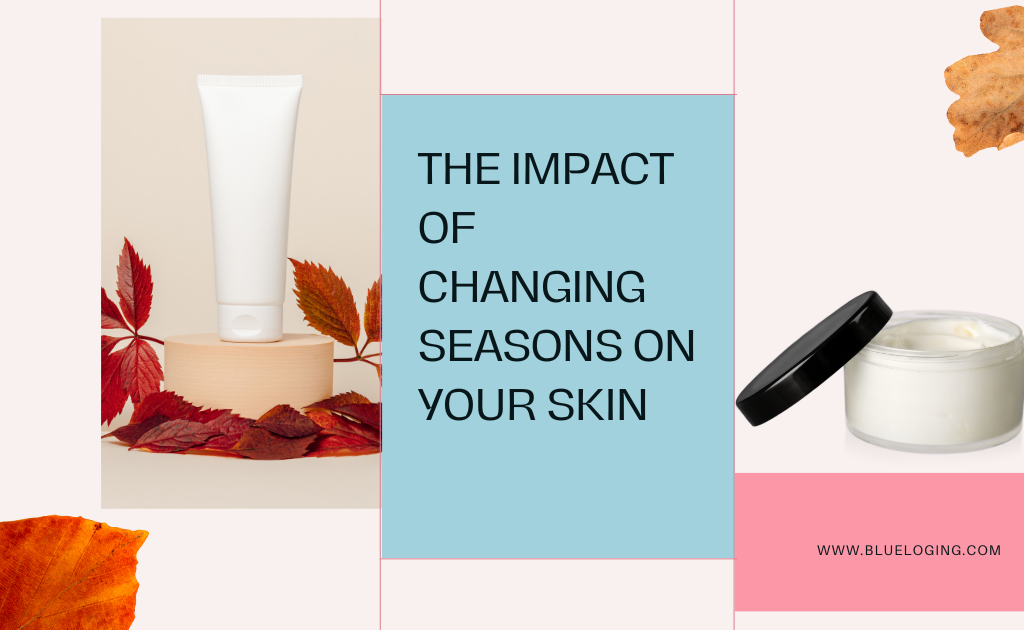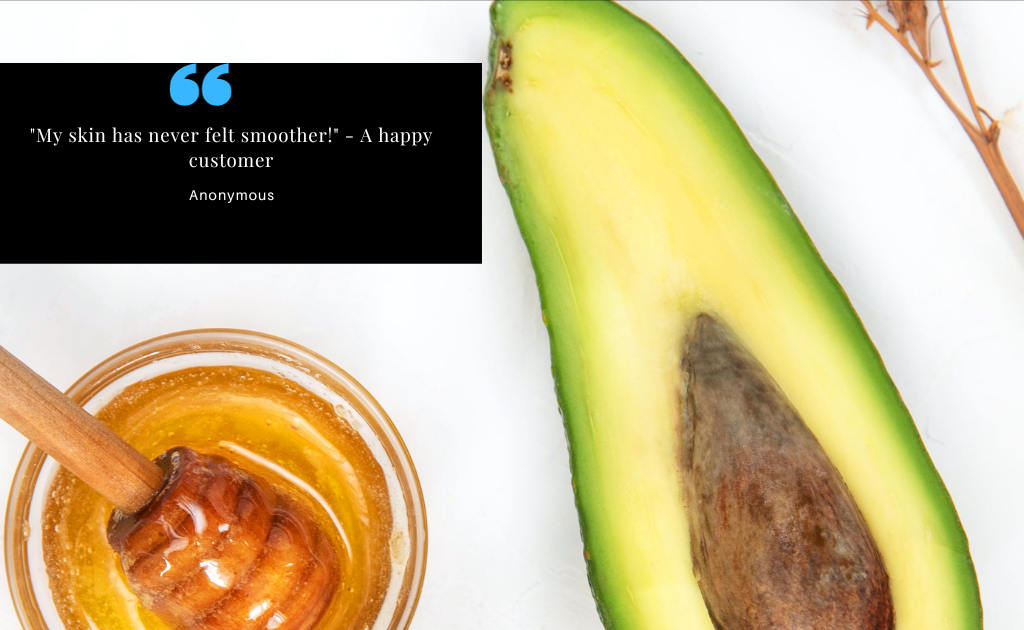Winter is a magical time when snowflakes dance in the air, and the world transforms into a glistening wonderland. But for your skin, it can be a harsh season. It brings challenges to our skin. The cold, dry air can leave our skin feeling dull and dehydrated. The cold, dry air, biting winds, and central heating can wreak havoc on your complexion. Don’t be afraid, because, in this comprehensive guide, I’ll explore the best winter skin care tips to keep your complexion radiant. So, let’s dive into the world of winter skin care tips and emerge with a healthy, glowing look.
Table of Contents
Best Winter skin care Tips
As winter descends upon us, it brings unique challenges to our skin. moisture stripped away by cold dry air, making our skin tight and flaky. Using the right strategies, you can maintain your skin’s health and beauty. Here, I’ll whisper the secrets of winter skincare tips making you a loveable person and ensuring you’re ready to face the cold weather.
First to find out: Why Winter Skin Care Matters
Seasonal Impact on Skin
Winter weather can wreak havoc on your skin. Seasons affect on skin. If one can’t do care during seasons skin will lose its glow and beauty with time. Specifically, in the winter, we first feel our skin changing condition. In winter, if we don’t give proper attention or care, it will damage our skin.

The Winter Skin Woes
In Winter, the low humidity levels and cold air can lead to various skin issues.
Dryness and Dehydration
One of the most common problems during winter is dry skin. I will discuss how to deal with this.
Chapped Lips and Hands
Your lips and hands are especially vulnerable to the harsh winter weather. I will discuss some tips to keep them soft and supple.
Dull and Lackluster Skin
The lack of sunlight and harsh conditions can leave your skin dull and tired. We will gain a natural glow by caring for our skin, which I will discuss in detail.
How to Protect from winter impact on skin
To fight off the winter skin woes, you need an arsenal of skincare essentials. Let’s explore what you should include in your regimen.
For Winter Skincare tips: Cleanser
The first thing in winter skin care tips is a gentle cleanser.
When the winter comes, and your skin starts feeling tight, dull & dry, a good cleanser is your first line of defense. But not just any cleanser will do the trick. To save yourself from the harsh effects of winter, your cleanser should have a range of must-have ingredients that provide hydration and protection.
Before buying any cleanser you should check the essential components your winter cleanser should contain:
- Hyaluronic Acid: This miracle ingredient is like a burst of moisture for your skin. Hyaluronic acid has an incredible ability to retain water. It helps to keep your skin well-hydrated and plump. It’s like a big, cozy blanket for your skin cells, ensuring they stay moisturized even in the driest of winter conditions.
- Glycerin: Glycerin is a humble yet powerful ingredient in a winter cleanser. It acts as a humectant, drawing moisture from the environment and locking it into your skin. It forms a protective barrier, shielding your skin from the harsh winds and cold temperatures.
- Aloe Vera: Aloe vera is a soothing ingredient. It’s perfect for getting rid of redness or any type of rashes that normally occur during winter.
- Ceramides: Ceramides are like the mortar between the bricks of your skin barrier. During winter, your skin barrier can become compromised, leading to dryness and sensitivity. Cleansers with ceramides help to repair and maintain this barrier, ensuring your skin stays protected and moisturized.
- Natural Oils: Cleansers infused with natural oils like jojoba, argan, or olive oil are excellent for winter. These oils provide an extra layer of moisture. By using these oils, your skin feels supple and soft. They also help to cleanse without stripping away your skin’s natural oils.
- Chamomile Extract: Chamomile extract is known for its calming properties. In winter, when your skin is exposed to harsh weather conditions, cleansers with chamomile extract can reduce redness and soothe irritated skin. It’s like giving your skin a warm cup of herbal tea.
- Vitamin E: Vitamin E is a powerful antioxidant that acts like a best friend for your skin. It not only nourishes your skin but also protects against free radicals. During winter, when your skin is more vulnerable to damage, having vitamin E in your cleanser can help maintain healthy skin.
- Fragrance-Free: Fragrances can be irritating, especially when your skin is more sensitive during winter. Opt for a fragrance-free cleanser to avoid any potential issues and keep your skin calm and happy.
As you shop for a winter cleanser, keep an eye out for these ingredients. A cleanser that combines these elements will not only cleanse your skin but also provide it with the care it needs to combat the cold, dry, and harsh winter weather.
Moisturizers: Your Best Friend for Winter skincare Tips
Moisturizing is the key to combating dryness. Choosing the right moisturizer for your skin is like finding the perfect winter coat to keep you warm and cozy. With countless options available, it’s necessary to know what to look for and consider your skin’s unique needs. Here’s a guide on how to choose the perfect moisturizer for your skin:
1. Know Your Skin Type
Before diving into the moisturizer aisle, determine your skin type. Is it oily, dry, combination, sensitive, or normal? Your skin type will guide you in selecting a moisturizer because every skin type faces different types of challenges during winter.
2. Must look for these Ingredients:
Look for key ingredients that cater to your skin type
- Hyaluronic Acid: Ideal for all skin types, it’s a hydration powerhouse.
- Glycerin: A humectant that draws in moisture, perfect for dry skin.
- Jojoba Oil: Excellent for sensitive and acne-prone skin.
- Shea Butter: A rich, emollient choice for dry skin.
- Niacinamide: Beneficial for sensitive or acne-prone skin.
- Ceramides: Great for maintaining the skin barrier, suitable for dry or sensitive skin.
3. SPF for Day Moisturizers:
Yes, believe me, SPF is essential. If you’re using your moisturizer during the day, consider one with built-in SPF. Sun protection is crucial year-round to shield your skin from UV.
4. Weight and Texture:
Lighter lotions are ideal for oily or combination skin, while thicker creams work well for dry or mature skin. Consider a gel-based moisturizer for a lightweight, hydrating feel. My favorite is gel-based moisturizer which I put on daily.
5. Fragrance or Fragrance-Free:
It depends on your choice, but some results show fragrances can be irritating, especially for sensitive skin. Opt for fragrance-free moisturizers to minimize the risk of irritation or allergies.
6. Consider Special Concerns:
If you have specific skin concerns, such as acne, aging, redness, or eczema, choose a moisturizer that addresses these issues. There are specialized formulas for each. Be a quick research on it because winter will not wait for you.
8. Patch Test:
To ensure a moisturizer doesn’t irritate your skin, perform a patch test. Apply a small amount to a discreet area and wait for 24-48 hours to check for any adverse reactions.
9. Avoid Common Irritants:
Be cautious if you have sensitive skin. Avoid products with alcohol, menthol, or harsh chemicals, as they can exacerbate irritation.
Choosing the right moisturizer is a personalized journey. It’s about finding a product that aligns with your skin’s unique needs and conditions. Remember, the perfect moisturizer is like a loyal companion for your skin, ensuring it remains soft and supple.
Hyaluronic Acid
For Winter skin care tips Hyaluronic acid is a game-changer in winter skin care.
Hyaluronic acid, often referred to as the “hydration hero” in the realm of skincare, is indeed a game-changer when it comes to winter skincare. As the temperatures drop and the air becomes drier, the Hyaluronic Acid saves the day, providing a vital boost to your skin’s health.
Here’s why hyaluronic acid is a winter skincare savior:
1. Intense Hydration:
Hyaluronic acid is a moisture magnet. It can hold up to 1,000 times its weight in water. When applied to your skin, it acts like a sponge, drawing moisture from the environment and locking it into your skin. This means that even in the harsh, dehydrating conditions of winter, your skin remains thoroughly hydrated.
2. Combats Dryness:
Winter weather often robs your skin of its natural moisture, leaving it feeling tight and dehydrated. Hyaluronic acid swoops in to counteract this dryness by replenishing and retaining moisture within the skin
3. Smooths Fine Lines and Wrinkles:
Dehydrated skin is more prone to the appearance of fine lines and wrinkles. By infusing your skin with moisture, hyaluronic acid can minimize the visibility of this line. It gives your skin a smoother, more youthful appearance.
`4. Non-Greasy Hydration:`
What sets hyaluronic acid apart from heavy, greasy moisturizers is its lightweight, non-comedogenic nature. This makes it an ideal choice for all skin types, even for those with oily or acne-prone skin. You get the intense hydration without the heavy, suffocating feel.
5. Soothes Irritation:
In the biting cold of winter, your skin can become irritated and red. Hyaluronic acid’s soothing properties calm down any inflammation, making it an excellent option for individuals with sensitive skin.
6. Improves Skin Barrier:
Winter can weaken your skin’s natural barrier, making it more vulnerable to environmental aggressors. Hyaluronic acid works to strengthen this protective barrier, fortifying your skin against the cold, dry winds
7. Complements Other Skincare Products:
Hyaluronic acid plays well with other skincare ingredients. You can easily incorporate it into your existing routine, whether you use it before your moisturizer or as part of a serum or cream. It enhances the efficacy of your other products by ensuring they have a well-hydrated canvas to work on.
In essence, hyaluronic acid’s ability to lock in moisture and keep your skin hydrated makes it a must-have during the winter months. It has quality to transforms your skin from feeling tight and flaky to being smooth, and glowing. So, when the winter winds start to bite, you can count on hyaluronic acid to be your friend for maintaining healthy, radiant skin.
Sunscreen – Yes, Even in Winter
“Why wear sunscreen in the winter?” you might wonder. After all, the sun doesn’t seem as intense, and it’s often hidden behind clouds. We also like the sunny day in winter. The importance of sunscreen during the winter months can’t be underestimated. Here are some compelling reasons why sunscreen remains a crucial part of your skincare routine, even in the chilliest of seasons:
1. UV Rays Don’t Take a Winter Break:
UV rays are ever-present, even on cloudy or overcast days. They come in two main types: UVA and UVB. UVA rays can prematurely age your skin, while UVB rays can cause sunburn. Both types can contribute to skin damage, including the development of wrinkles, fine lines, and skin cancer. Wearing sunscreen helps shield your skin from these harmful effects year-round.
2. Reflection from Snow:
Snow is particularly reflective, bouncing UV rays back onto your skin. This means that when you’re out enjoying winter activities like skiing or snowboarding, you’re getting hit with a double dose of UV exposure—direct from the sun and reflected off the snow.
3. Protective Barrier:
Sunscreen acts as a protective barrier for your skin. It creates a shield that helps minimize the damage caused by UV rays. During winter, when your skin may be more susceptible to dryness and irritation, this barrier is invaluable.
4. Prevents Skin Aging:
Prolonged UV exposure can lead to premature skin aging. Sunscreen helps prevent the breakdown of collagen and elastin, which are vital for maintaining youthful, firm skin. By wearing sunscreen in winter, you’re investing in the long-term health and appearance of your skin.
5. Decreases Skin Cancer Risk:
UV radiation is a known cause of skin cancer. By wearing sunscreen year-round, you reduce your risk of developing skin cancers like melanoma, basal cell carcinoma, and squamous cell carcinoma.
6. Maintains an Even Skin Tone:
Sunscreen helps prevent the development of dark spots, also known as hyperpigmentation. It keeps your skin tone even and reduces the appearance of blotchiness or redness, which can become more prominent in winter due to increased sensitivity.
7. Supports Skincare Routine:
If you’re using anti-aging products or have specific skin concerns like hyperpigmentation or acne, sunscreen is essential to protect the progress you’re making with these products. UV exposure can negate the positive effects of your skincare routine.
8. Lip Protection:
Don’t forget to protect your lips. Lips are often exposed to the elements, and they can easily become chapped or sunburned. Using a lip balm with SPF helps keep your lips soft, smooth, and sunburn-free.
The importance of wearing sunscreen in the winter is emphasized by dermatologists, skincare experts, and health organizations such as the American Academy of Dermatology (AAD) and the Skin Cancer Foundation. These organizations consistently recommend the use of sunscreen throughout the year, regardless of the season, to protect the skin from the harmful effects of ultraviolet (UV) radiation from the sun.
In short, sunscreen is not just a summer essential—it’s a year-round necessity. By making it a daily habit, you’re taking a proactive step to protect your skin from the sun’s damaging effects, ensuring that it remains healthy, youthful, and beautiful, even during the winter months. So, don’t leave home without it, no matter the season. I always use sunscreen whatever the season even at home.
DIY Winter Skin Remedies
For those who love a natural touch, we’ve got some fantastic DIY remedies for winter skin care .

Honey and Avocado Face Mask
Count face mask using honey and avocado as a winter skincare tips. We’ll guide you through the process.
A Honey and Avocado Face Mask is a wonderful natural remedy to help nourish and moisturize your skin during the dry winter months. Avocado is rich in healthy fats and vitamins, while honey is a natural humectant, which means it can help retain moisture in your skin. Here’s how to make and apply this mask:
Ingredients:
- 1 ripe avocado
- 2 tablespoons of honey
Instructions:
- Start by selecting a ripe avocado. It should be soft to the touch but not overly mushy.
- Cut the avocado in half, remove the pit, and scoop the flesh into a bowl.
- Add 2 tablespoons of honey to the bowl with the avocado.
- Mash and mix the avocado and honey together until you have a smooth, consistent paste. You can use a fork for this, or blend the ingredients in a food processor for a smoother texture.
Application:
- Before applying the mask, make sure your face is clean and free from makeup or other products. You can cleanse your face with a gentle cleanser.
- Apply the avocado and honey mixture to your face, spreading it evenly. You can use your fingers or a clean makeup brush.
- Avoid the sensitive area around your eyes. If you have extra mixture, you can apply it to your neck and chest for added benefits.
- Relax and leave the mask on for about 15-20 minutes. During this time, you can lie down and close your eyes to enhance the experience.
- After 15-20 minutes, rinse the mask off with lukewarm water. Make sure to remove all traces of the mask.
- Finish with your favorite moisturizer to lock in the hydration.
This face mask can help hydrate your skin and leave it feeling soft, supple, and refreshed. It’s a great natural option for combatting dryness during the winter season. You can use this mask once a week or as needed to maintain healthy, moisturized skin.
FAQs (Frequently Asked Questions)
Is it necessary to use sunscreen during winter?
Yes, it's crucial to use sunscreen in winter. UV rays are still present, and they can damage your skin even on cloudy days.
How often should I exfoliate my skin in winter?
Limit exfoliation to once or twice a week in winter to avoid over-drying your
Can I use body butter on my face?
It's not recommended to use body butter on your face, as it may be too heavy and clog pores. Opt for a facial moisturizer instead.
How long should I leave a honey and avocado face mask on my skin?
You can leave a honey and avocado face mask on for about 15-20 minutes. Rinse it off with warm water and follow with your regular skincare routine for best results.
What is the best way to prevent chapped lips during winter?
Invest in a good-quality, hydrating lip balm. Look for a lip balm with natural ingredients like beeswax, shea butter, or coconut oil. Apply it regularly throughout the day to keep your lips moisturized.
Final Thoughts
Winter skincare tips is all about providing your skin with the nourishment and protection it needs to stay healthy and beautiful. A combination of the right products, a dedicated routine, and a little self-care will go a long way in keeping your skin radiant even when the weather is cold and harsh. Now, with these winter skin care methods, you’re well-prepared to face the winter with confidence and glowing skin.
HERE you can read also about Self care.

Add a Comment